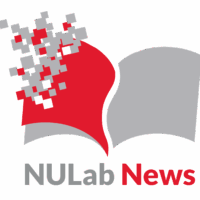Reposted from News@Northeastern
The COVID-19 pandemic has wrought havoc on the United States economy, where stay-at-home measures have brought certain industries—such as restaurants, hotels, and salons—almost to a complete standstill. Economists predict that the economic downturn will be sharp, but short—a prediction that rests upon the choices that government officials make during this crucial period, says economist Alicia Sasser Modestino.
“The sky is falling, but we might have some ways to put the pieces back together,” said Sasser Modestino, who is an associate professor of public policy and urban affairs as well as economics at Northeastern.
More than 30 million people in the U.S. have filed for unemployment benefits in the last six weeks, an unprecedented number in the country’s history that exceeds all the jobs created since the Great Recession in 2008-09.
Claims for unemployment benefits have jumped more than 3,000 percent since the beginning of March, before public health officials recommended that people stay home and states suspend nonessential businesses, Sasser Modestino said.
She was one of the keynote speakers at this year’s Boston Area Research Initiative conference, which was held online because of such public health recommendations. You can watch the conference here.
Unemployment trends in Massachusetts mirror those in the U.S. at large, Sasser Modestino said: There were roughly 5,000 claims in the commonwealth at the beginning of March and more than 180,000 claims at the end of the month.
Sasser Modestino said that Massachusetts could lose as many as 570,000 jobs between April and June, resulting in an unemployment rate of up to 18 percent, according to projections by the Massachusetts Taxpayer Foundation.
And, she says, there are reasons to believe that Boston may sustain greater economic disruption than the U.S. as a whole.
That’s partly because the city had high initial exposure to SARS-CoV-2, the virus that causes COVID-19, Sasser Modestino said. A combination of robust international travel in and out of Logan International Airport and a conference held in the city’s seaport in early March that turned out to be a viral “super spreader” brought the virus to Boston more quickly than to many other parts of the country.
“As a result, [city and state officials] prudently put in place much-needed ‘social distancing’ measures right away, and more quickly than other states,” Sasser Modestino said. “But that means our economic downturn will be much steeper and longer.”
Additionally, she said, the industries that have been hit hardest by the pandemic—including healthcare, education, and tourism—are some of the biggest drivers of Massachusetts’ economy.
While there is no doubt pressure to reopen local and global economies, Sasser Modestino said that doing so responsibly is the only way to avoid panic and further contamination.
Reopening the economy will require widespread testing and contact-tracing in order to contain future outbreaks, she said. Failing to provide either of these measures will result in future lockdowns and “an erosion of consumer confidence that would lead to voluntary social distancing out of fear of contracting the coronavirus,” Sasser Modestino said.
“This is not a tradeoff between lives and livelihoods; the two are completely intertwined,” she said.
For media inquiries, please contact Marirose Sartoretto at m.sartoretto@northeastern.edu or 617-373-5718.


